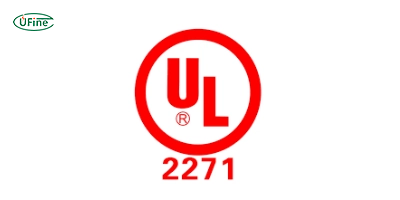Are you curious about battery certifications? This article will delve into the differences between UL2054 and UL2271 certifications. These certifications ensure battery safety and performance. Let’s explore the specifics of each certification and how they impact your battery choices. Understanding these certifications is crucial whether you’re purchasing batteries for personal devices or industrial applications. Let’s get started on finding the proper certification for your battery needs.
Part 1. Overview of UL standards
Underwriters Laboratories (UL) is a well-known organization globally, setting safety standards for different products, including batteries. These standards ensure batteries meet strict safety and performance requirements before they reach customers. They cover areas like electrical safety, fire resistance, and environmental impact.
Battery certification under UL involves tough testing by certified labs. They check factors such as battery chemistry, construction, and performance in various conditions. Manufacturers show their commitment to making safe and reliable batteries by following UL standards, which also consider sustainability and environmental impact.
UL standards create a framework for evaluating and improving battery safety, performance, and sustainability. This helps consumers make informed decisions about their batteries.
Part 2. Understanding UL2054 certification
What is UL2054?
Purpose: UL2054 certification is a safety standard developed by Underwriters Laboratories (UL) specifically for household and commercial batteries.
Scope: It encompasses various aspects of battery safety, including electrical, mechanical, and thermal properties, to ensure the safe operation of batteries in consumer electronics and industrial applications.
Testing Requirements for UL2054
Specific Tests: Batteries undergo rigorous testing to assess their safety and performance under various conditions, including overcharge, short circuit, and high temperature.
Criteria: UL2054 sets criteria for cell construction, voltage limits, and protection against leakage to ensure batteries meet safety standards.
Applications of UL2054 Certified Batteries
- Consumer Electronics: UL2054-certified batteries are used in smartphones, laptops, and digital cameras. They ensure safe and reliable power.
- Medical Devices: Medical equipment, like portable defibrillators and infusion pumps, needs UL2054-certified batteries for patient safety.
- Industrial Equipment: Industries such as automotive and aerospace use UL2054-certified batteries. They power tools, machinery, and emergency lights safely in tough conditions.
Part 3. Understanding UL2271 certification
What is UL2271?
Purpose: UL2271 certification is a safety standard established by Underwriters Laboratories (UL) specifically for lithium-ion batteries used in electric mobility devices, such as electric bicycles and scooters.
Scope: This certification aims to ensure the safety and reliability of batteries by addressing factors like electrical, mechanical, and thermal properties, which are crucial for the safe operation of electric vehicles.
Testing Requirements for UL2271
Specific Tests: Batteries undergo comprehensive testing to assess their safety and performance under various conditions, including overcharge, short circuit, and extreme temperature environments.
Criteria: UL2271 sets stringent criteria for battery design, construction, and performance, including requirements for cell composition, voltage limitations, and protection against thermal runaway.
Applications of UL2271 Certified Batteries
- Electric Mobility Devices: UL2271-certified batteries power electric bikes, scooters, and other mobility devices. They ensure rider safety and vehicle reliability.
- Industrial Applications: UL2271-certified batteries are used in electric forklifts and pallet jacks. They provide safe and efficient power for industrial operations.
- Emergency Backup Systems: Many industries and facilities use UL2271-certified batteries for emergency backup. They offer reliable power during outages and critical situations.
Part 4. Critical differences between UL2054 and UL2271
Scope:
UL2054 covers batteries for household and commercial use. UL2271 targets lithium-ion batteries for electric mobility devices.
Testing Focus:
UL2054 focuses on general battery safety, like overcharge and short circuit protection. UL2271 adds extra safety tests for lithium-ion batteries, like thermal runaway prevention.
Applications:
UL2054-certified batteries power consumer electronics and appliances. UL2271-certified batteries power electric bikes, scooters, and other mobility devices.
Environmental Conditions:
UL2271 handles tough conditions for electric vehicles, like vibrations and extreme temperatures. UL2054 does not cover these.
Performance Criteria:
UL2271 has stricter rules for lithium-ion batteries, especially for energy density and cycle life. UL2054 has more general rules.
Regulatory Compliance:
Rules for electric mobility devices might need UL2271 certification. UL2054 certification might be enough for general safety rules.
Manufacturing Considerations:
Manufacturers need extra steps and quality checks for UL2271 certification. These steps are different from those needed for UL2054 certification.
Part 5. Choosing the proper certification for your battery
Factors to Consider
When selecting between UL2054 and UL2271 certification for your battery, you should consider several factors:
- Application: Think about how you will use the battery. Use UL2054 for consumer electronics or general commercial needs. Use UL2271 for electric bikes or scooters.
- Safety Requirements: Look at the safety needs of your device. UL2271 gives more safety tests, especially for lithium-ion batteries. This is important for devices in tough conditions.
- Regulatory Compliance: Find out if any rules or industry standards need a specific certification. These rules can help you decide.
- Performance Demands: Check what performance you need from your battery. Look at energy density, cycle life, and reliability. Pick the certification that fits these needs best.
Benefits of Each Certification
UL2054 Certification Benefits:
UL2054 certification ensures that batteries meet general safety standards, making them suitable for various consumer electronics and commercial applications. It assures basic safety features like protection against overcharging and short circuits.
UL2271 Certification Benefits:
UL2271 certification is tailored explicitly for lithium-ion batteries used in electric mobility devices. It offers additional safety testing and requirements designed to address the unique challenges of these batteries, such as thermal runaway prevention and resistance to environmental factors like vibration and extreme temperatures.
Part 6. FAQs
-
Are UL2054 and UL2271 certifications mandatory for all batteries?
No, these certifications are not mandatory for all batteries. However, they are highly recommended, especially for batteries used in consumer electronics, industrial equipment, and electric mobility devices, to ensure safety and reliability. -
How can I verify if a battery is UL2054 or UL2271 certified?
You can verify a battery’s certification status by checking the product packaging or labels for the UL mark and the specific certification number corresponding to UL2054 or UL2271. -
Can a battery be certified under both UL2054 and UL2271 standards?
Yes, a battery can be certified under UL2054 and UL2271 standards if it meets the respective criteria for each certification. This dual certification may be beneficial for batteries intended for multiple applications. -
Are there any additional certifications or standards related to battery safety?
Yes, apart from UL2054 and UL2271 certifications, there are other standards and certifications, such as IEC 62133, EN 50604, and UN 38.3, which may also be applicable depending on the specific requirements of the battery and its intended use.
Related Tags:
More Articles

How to Choose the Best Floor Scrubber Battery for Commercial Cleaning?
Selecting the ideal floor scrubber battery ensures a long runtime, rapid charging, and minimal maintenance for efficient commercial cleaning operations.
Battery for Blower vs Battery for Leaf Vacuum: Which One Should You Choose?
Battery for blower vs leaf vacuum—learn the key differences in power, fit, and runtime to choose the right battery for your outdoor tool needs.
How to Choose the Right Battery for Blower?
Choosing the right blower battery? Consider voltage, capacity, chemistry & usage. This guide helps match the best battery for peak performance.
How to Choose the Best Insulated Battery Box for Lithium Batteries?
Choosing the Best Insulated Battery Box for Lithium Batteries? Discover key factors such as size, material, and safety for optimal protection and performance.
7 Critical Elements on a Lithium Battery Shipping Label
What must be on a lithium battery shipping label? Learn 7 key elements to ensure safety, legal compliance, and correct handling across all transport modes.





